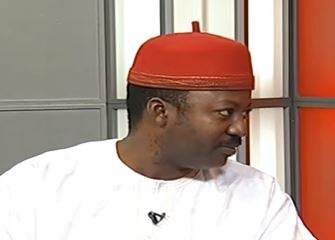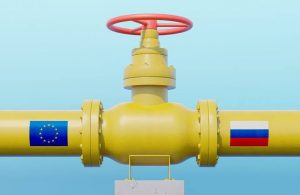
Unic Press UK: “The Increase Of PMS Price From N86.50/L To N145/L”. Being full text of the Press Release on the 16th May 2016 by Engr Martin Onovo, the 2015 Presidential Candidate of the National Conscience Party (NCP).
The increase of the price of PMS (petrol) from N86.50 to N145/l on Wednesday, 11th May, 2016, represents another giant step backward for the Nigerian economy and for Nigerians.
Successive governments since after the General Sani Abacha government have not understood the folly of increasing the price of PMS and the dire consequences of the same.
With the efforts of Chief Gani Fawehinmi, SAM, SAN, and the National Conscience Party [NCP] over several years on this issue of pricing petroleum products, any competent government should have understood that increasing the price of petroleum products subverts the Nigerian economy in several ways and undermines national development.
The history of the price of PMS in Nigeria represents a shocking testimony to the biblical position that, ‘My people perish for lack of knowledge’ – Hosea 4:6.
Since, the Gen. Obasanjo military administration increased the price of PMS from 8k (Eight Kobo) to 15k (Fifteen kobo) in 1978, almost all subsequent governments also increased prices further up to the series of increases by the Gen. Babangida government in the mid-eighties.
With all these increases, the Nigerian economy has not benefitted from increasing the price of PMS. On the contrary, these increases have each time resulted to inflation, industrial crisis, unemployment, declining economic productivity and poverty.
We expected that after Gen. Abacha had demystified and documented in Federal Military Government decrees on the ‘Petroleum Trust Fund’ [PTF], the reality of the domestic cost of PMS production and distribution, that subsequent federal governments will appreciate the fundamentals and act with strategic insight but alas, subsequent illegitimate and unpatriotic regimes have continued on this path of economic ruination.
The basic dysfunctionality in the supply of petroleum products to Nigerian consumers is the apparent preference of importation of products to domestic refining.
While we must import if we do not have domestic supply, a patriotic and effective government should have restored existing domestic refining capacity, upgraded the refineries, and built new refineries to increase domestic refining capacity and to maximize national revenue from crude oil by the export of refined products.
Some of the ways importation and the associated price increases subvert the economy include:
- Increased Cost of Petroleum Products due to wastefulness and inefficiency. Nota Bene: Cost of domestic supply is much less than cost of importation.
- Undermines the Utility of national assets & investments in refineries. Abandoning colossal national investments in the four existing refineries.
- Increase in unemployment from domestic refining, product and by-product off-takers, and support services by the decline in local refining and support activities.
- Subversion of our national GDP by very low domestic productivity in the strategic refining sector.
- Hyper-inflation in the economy. The FGN Monetary Policy Committee has previously confirmed this a few years ago. Prices of petroleum products, energy, transportation, materials, manufacturing, food, etc. will increase sharply.
- Further Devaluation of the Naira due to hyper-inflation and FOREX demand for product importation.
- Undermines our national energy security. Energy Insecurity is from increased neo-colonial dependence on foreign countries for energy supply.
- Undermines the real income of workers due to hyper-inflation and resulting devaluation of Naira.
- Political and socio-economic problems due to increased poverty: Industrial Crisis, Increased Crime and Desperation, Hopelessness, Poverty, etc. Increase in socio-political tension due to increased poverty.
- Government cannot benefit as its own costs too will rise very dramatically. Particularly, Energy, Transportation, Materials, overhead and Project Costs.
- Hinder budget implementation and infrastructural development due to project cost escalation, review and re-work. Projects Costs will have to be reviewed and revised. This will hinder progress of Infrastructural development projects.
- Undermines technological development since petroleum refining professionals will have less opportunity to practice, improve and train successors.
Some may claim that the economic logic is unclear, but they may not also claim that the historical facts are unclear.
The long history of increases in the price of PMS from 8 kobo in 1966 to 15 kobo in 1978 to 20 kobo in 1982, to 70 kobo in 1991 to N5 in 1993 to N11 in 1994 to N20 in 1999 to N70 in 2007 to N87 in 2015, to N145 now, confirms that the Nigerian economy has never benefited from any increase in the cost of PMS.
PMS price increases have been implemented about twenty times since 1978. None, except may be, the Gen. Abacha [PTF] increase has led to some infrastructural benefits.
It must be clearly indicated that with domestic refining, the current cost of PMS will be less than N78/l (at N200/$ exchange rate).
The cost of PMS in Venezuela (another OPEC member country) was 12 cents per gallon (about N6/l at N200/$ exchange rate), until this year 2016 when it was increased to 38 cents per gallon (about N20/l).
It is an indication of the general national dysfunctionality in Nigeria that we have continued to export crude oil and import petroleum products since 1999 without correction, despite the wastefulness of this economic paradox.
This general national dysfunctionality must be blamed on the previous and current rulers of Nigeria. Remember, ‘Everything rises and falls on leadership’.
Imported Petrol has unnecessary additional costs like:
- International Crude Oil Sale Price and refinery Profit Margins.
- Transportation Costs of Products from source country to Nigeria.
- Port Charges, Taxes and Export duties at source Country.
- Insurance costs for transportation.
- Brokerage costs for agents, etc.
These unnecessary additional costs contribute to the very high cost of imported petroleum products in Nigeria.
The following are facts:
- PMS price is still officially regulated in Nigeria to < N145, today.
- Nigeria is a major exporter of crude oil and a member of OPEC.
- Nigeria has four existing refineries with a total capacity of 445,000 bpd.
- Existing total refining capacity in Nigeria is sufficient for domestic use.
- Improving domestic refining will increase real GDP and improve employment.
- The National Conscience Party [NCP] promised on 17th, ’14 at its public presentation of its presidential and vice-presidential candidates, to reduce petroleum products prices by improving domestic refining if elected to the presidency.
- The APC had questioned the N97/l price in 2014 against the falling price of crude oil. Same APC has now increased prices against the falling crude oil price. What a paradox!
- International price of crude oil varies daily.
Considering the indicated facts, it becomes obvious that the rulers of Nigeria have not only continued to mismanage the downstream oil sector of the economy but have also mismanaged the entire Nigerian economy leading to a very high unemployment rate, mass poverty, waste, corruption, rising national debt and a looming debt crisis.
The new N145/l price of PMS is too high and is the natural result of this most wasteful norm of importation of petroleum products by Nigeria, a major exporter of crude oil with four existing refineries that are under-utilized.
The application by the government of an exchange rate of N285/$ on their questionable pricing template to arrive at N145/l, also represents an irregular duplication of the official exchange rate of the Naira and an admission of further official devaluation of the Naira. Did you say APC tortoise economics?
Nigeria must depart from this path of economic ruination.
We must immediately plan to boost domestic refining and continuously improve domestic refining capacity till we can meet domestic demand.
Subsequently, we can further improve domestic refining till we can refine all our crude oil production, stop crude oil exports and export refined petroleum products for higher national revenues from crude oil.
Funds for the improvement of domestic refining capacity can be mobilized from several sources.
The following can be considered by the government:
- The outrageous compensation and ostentation of public office holders.
- Cost of official medical tourism by public officers.
- Corruption control.
- Reduction in the cost of governance.
- Sale of some of the aircraft in the presidential fleet.
- Recovery of looted funds.
- Reduction of waste from the recurrent expenditure.
There is a large market for petroleum products here in West Africa.
Nigeria can develop its domestic refining capacity to supply this market and increase national revenue very significantly.
Martin Onovo, a public figure and eminent consulting engineer. He was the 2015 Presidential Candidate of the National Conscience Party (NCP)



